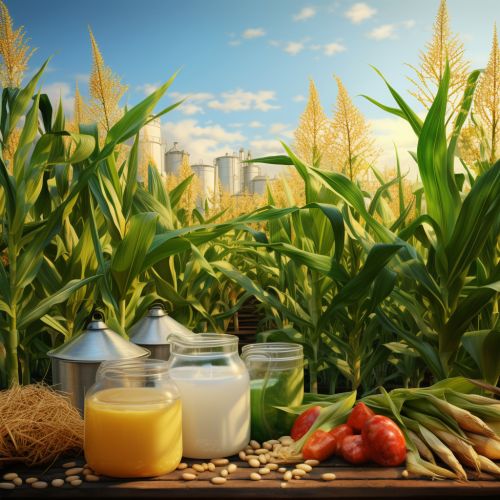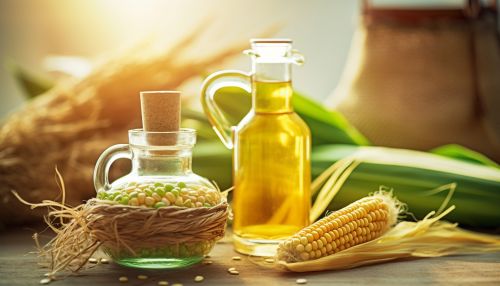Biofuel
Introduction
Biofuel is a type of energy derived from biological sources such as plants and animals. The biofuels are often touted as a viable alternative to fossil fuels, which are finite and contribute to global warming due to the high levels of carbon dioxide they produce when burned. Biofuels, on the other hand, are renewable and produce fewer greenhouse gases, making them a more environmentally friendly option. However, the production and use of biofuels also have their own set of environmental and socioeconomic impacts, which need to be carefully considered.
Types of Biofuels
There are primarily three types of biofuels: bioethanol, biodiesel, and advanced biofuels.
Bioethanol
Bioethanol is an alcohol made by fermenting the sugar components of plant materials and it is made mostly from sugar and starch crops. These include maize, sugarcane and, more recently, sweet sorghum. The latter crop is particularly suitable for growing in dryland conditions, and is thus a very promising crop for African countries. This type of biofuel is commonly used as a replacement for gasoline in cars and other vehicles.
Biodiesel
Biodiesel is made from vegetable oils, animal fats or recycled greases. It can be used as a replacement for diesel fuel in most vehicles, particularly diesel engines that have been modified to handle biodiesel's different properties. Biodiesel is safe, biodegradable, and reduces serious air pollutants such as particulates, carbon monoxide, hydrocarbons, and sulfur dioxide.
Advanced Biofuels
Advanced biofuels, also known as second-generation biofuels, are made from non-food crops or agricultural waste. The feedstock used in the production of advanced biofuels includes lingo-cellulosic biomass sources such as switchgrass and miscanthus, and waste materials such as municipal solid waste, agricultural waste, and forest residue. These biofuels are considered to be more sustainable than first-generation biofuels because they do not compete with food crops for land and other resources.


Production Process
The production process of biofuels involves a series of steps that include feedstock production, feedstock conversion, and fuel refining.
Feedstock Production
The first step in the production of biofuels is the cultivation of feedstock. For bioethanol, this could be crops like corn or sugarcane. For biodiesel, it could be oilseed crops like soybeans or canola. The feedstock is harvested and prepared for conversion into biofuel. This preparation often involves drying the feedstock and grinding it into a coarse powder.
Feedstock Conversion
The next step is the conversion of feedstock into biofuel. This involves a process called fermentation. During fermentation, microorganisms such as yeast or bacteria are used to convert the sugars in the feedstock into ethanol. The ethanol is then distilled and dehydrated to increase its purity.
Fuel Refining
The final step in the production process is fuel refining. During refining, the biofuel is processed to remove any impurities. This ensures that the biofuel meets the required fuel standards and is safe for use in vehicles.
Benefits of Biofuels
Biofuels offer several benefits over traditional fossil fuels.
Renewability
Biofuels are made from renewable resources. This means that they can be replenished over time and are therefore more sustainable than fossil fuels, which are finite.
Reduced Greenhouse Gas Emissions
Biofuels produce fewer greenhouse gas emissions than fossil fuels when burned. This is because the carbon dioxide released during the combustion of biofuels is offset by the carbon dioxide absorbed by the plants used to produce the biofuels.
Energy Security
Biofuels can be produced locally, reducing a country's dependence on foreign oil. This can contribute to a country's energy security.
Challenges and Impacts
Despite the benefits, the production and use of biofuels also present several challenges and impacts.
Food vs. Fuel Debate
The food vs. fuel debate is a major issue in the biofuels industry. This debate centers around the concern that the land, water, and other resources used to produce biofuels could be better used to grow food.
Environmental Impact
While biofuels are often touted as being green, they do have an environmental impact. The production of biofuels requires substantial amounts of water and can lead to deforestation if not managed properly.
Economic Considerations
The economic viability of biofuels is another concern. Currently, biofuels are often more expensive to produce than fossil fuels. This cost difference can make it difficult for biofuels to compete with fossil fuels without government subsidies.
Future of Biofuels
The future of biofuels looks promising with advancements in technology and an increasing focus on renewable energy sources. The development of third-generation biofuels, also known as advanced biofuels, is one of the most promising areas of research in the field. These biofuels are made from algae or other fast-growing biomass sources and could potentially provide a much higher yield with less impact on the environment.
